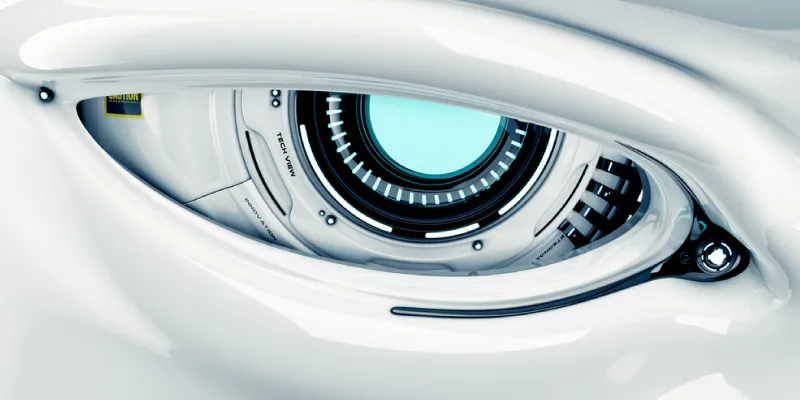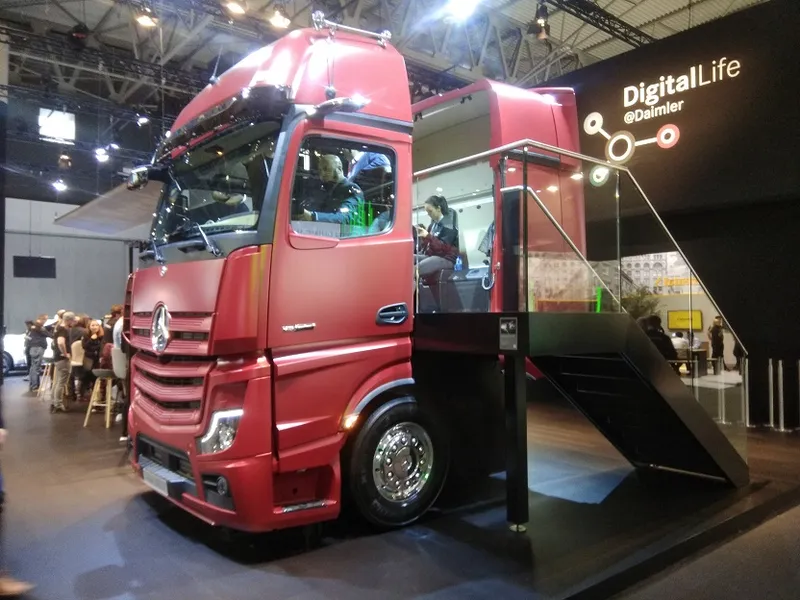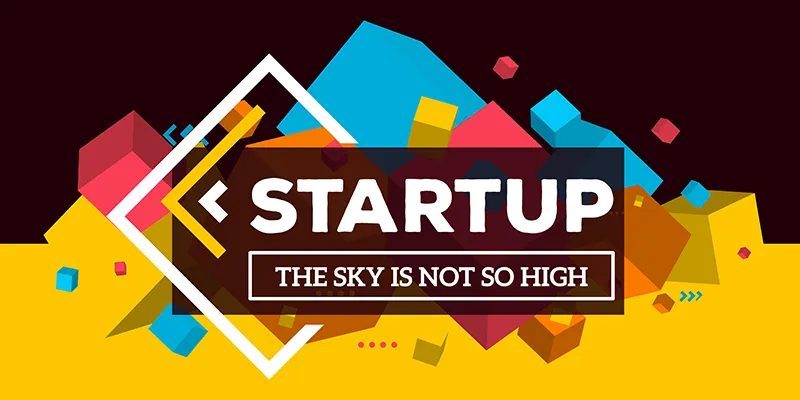Dreams, decisions, and digital: how these entrepreneurs build mobile products in AI, security, and wellness
In our five photo essays and three analysis pieces on the Mobile World Congress 2019, we uncover insights on the ambitions of entrepreneurs, branding strategy, and convergence of digital platforms.
Software is eating the world, and mobile is connecting the worlds of humans and machines. The Mobile World Congress (MWC) in Barcelona continues to be one of the best global platforms to see the future of such a connected planet, and gather insights from pioneering entrepreneurs in this space.

In our earlier analysis pieces, we focused on agritech, KYC, design, and connectivity solutions. See also our five photo essays from MWC 2019 on networked robots, innovative startups, creative marketing, 4YFN pavilion, and government promotion.
AI platforms
Ubiquitous mobile networks are converging with AI to create not just smarter networks but a range of predictive applications for industries across the board. “We build technology engineering products and platforms that leverage AI. This includes machine learning, computer vision through deep learning, and advanced natural language processing for various verticals,” said Vignesh Iyer, Global VP at AI platform development company Winjit, in a chat with YourStory.
Winjit is headquartered in Nashik, with offices in Bengaluru, Mumbai, and Pune. There are also centres of excellences in San Francisco, New York, and Johannesburg. At MWC 2019, Winjit showcased its products PredictSense, IoTSense, VisionSense and KonnectSense, that address various forms of data-driven AI products.
“In the coming year, we are productising some of our advanced work in the distributed deep learning area, wherein we are combining the best of neural nets with distributed ledger technology and Blockchain-based GPU mining,” Vignesh adds. Its partners are domain experts, data scientists, and system integrators from different industry verticals.
Digital security
The mobile world also opens the door to a range of risks in terms of security and privacy. “We believe in a digital future where privacy and security is a right available to everyone. As a crypto-engineering company we want to equip our customers so that they can keep their valuable, digital information safe,” says Douglas Bakkum, CEO and Co-founder of Shift Cryptosecurity.
The company was launched in 2015 as a spin-off of Switzerland’s ETH-Zurich University and then graduated from the F10 accelerator programme in 2017. It was based for a while in Generali’s Garage Incubator before setting up its headquarters in Zurich. Its investors are from Switzerland, US, and Japan.

The company’s products include BitBox, a cryptocurrency hardware wallet that has been shipped to over 100 countries. The second version of BitBox has an on-board micro SD card slot and USB-C connector to be able to work directly with mobile phones.
“We are continuously improving our desktop app, porting it to mobile devices, and listening to our customers to add requested features such as local language support and a guide to learn more. Building usable products is key for us, and we try to do so with both the hardware and software,” Douglas explains.
IoT-based colour therapy
One of the more innovative wellness-tech startups at MWC 2019 offers solutions for colour therapy. “Our core is our algorithm to change from emotional and physical data of users to colour-therapeutic solutions,” explains Peter Cho, Marketing Manager of IoT-based colour therapy firm Junggam. The Korean company's product range is called Onia.
“We have knowledge of colour therapy, and have calculated the solution in digital form via our algorithm,” Peter adds. The company has distributors in Germany, US, Japan and UAE. “We were very busy last year because of our R&D, so we could not spend much time on selling,” he says.
Upcoming products including colour therapy solutions for pregnant women; another solution is designed along with home furniture. A challenge faced is educating customers about how colour therapy works, and how smartphones and IoT fit into the picture. The company has an angel investor in the US, and is looking out for more investors and accelerator support.
Local commerce
The mobile ecosystem opens up opportunities for global as well as local players in commerce, such as Dopuo in Spain. The company has implemented a system based on the analysis of consumer purchasing decision processes within proximity businesses. It has begun with Spanish city Olot, and plans to expand to other cities once 100 local companies have registered.
“Our partners are the public administrations and commerce associations. We are looking daily for collaborations with different municipalities to generate more sites where we can use our application,” says Aleix Lagares, CEO and Founder of Dopuo.
The startup advantage
The entrepreneurs at MWC 2019 shared insights on what it means to be working in a startup as compared to a larger established enterprise. “The best thing about working in a startup is that there are no special restrictions on one’s position and limits. We can try everything together as one team. We share all information about our company, solve problems together, and decide on our future direction,” explains Peter of Junggam. The government of Korea also has a number of support schemes for startups, he adds.
“The best thing about being in a startup is simply the opportunity to make a difference in the world. When starting the company, we can choose which important problems people face in the world today that we would like to try to improve,” says Douglas of Shift Cryptosecurity.
The early team can have fun figuring out how exactly to do this, he adds. In this case, the choices were to empower people in the digital world, especially in the areas of security and privacy.
“The best thing about being in a startup is being able to take risks, to be able to develop mental models daily, and to bring about disruption with the real world to benefit end-users,” says Aleix of Dopuo. “Being in a startup requires you to be agile and nimble, and that constantly forces us to challenge ourselves in the dynamic industry of AI,” says Vignesh of Winjit.
Marketing and promotion
Some of the exhibitors are regulars at MWC, while others were exhibiting for the first time. “This has been our sixth year in a row at MWC, wherein we have showcased different products and offerings. The biggest benefit of MWC is access to the global stage to present and validate our concepts,” explains Vignesh of Winjit.
The event has seen a lot of changes from its early days of being focused only on the mobile and telecom sector to the advanced world of AI and IoT, he observes. “Some of the challenges that could be addressed for first-time visitors are structuring the halls in a manner that combines group of services together, without getting overwhelmed,” he recommends.

“MWC was an amazing event to attend. The halls were full of new technologies and we could imagine how society will be in the future,” enthuses Peter of Junggam. “We got so many ideas on how to develop our colour solutions, and also saw many new possibilities of emerging technologies to harness,” he adds.
“We also met many nice people who really showed a liking and interest in our product and philosophy,” Peter says. “Actually MWC is not yet over for us, this is the beginning, we have to communicate with many international partners let them know about our potential,” he adds.
“MWC is an annual event that I never miss attending; this year I have had the opportunity to be an exhibitor. I generated a lot of contacts and visibility. I have done more than a hundred demonstrations, and it has been a great opportunity to be able to validate more hypotheses,” says Aleix of Dopuo.
“This was our first time at MWC. We exhibited as part of the Swiss Pavilion with support from Switzerland Global Enterprise and Innosuisse. It’s a huge advantage at trade fairs to be part of a bigger group, especially the Swiss Pavilion as the Swiss brand carries such power globally,” Douglas of Shift Cryptosecurity explains. With their assistance, the startup was able to focus on its business rather than on logistics and organisational matters.
Switzerland also has a supportive ecosystem for the crypto sector. “Through the Swiss government, we have participated in the Swiss Pavilion at important international conferences, received financial support for travel and business development, and been introduced at embassies,” Douglas says.
“Compared to similar events we attended in the past, we found that both visitors and exhibitors were more tech-savvy and knowledgeable about the crypto-world in general. That was definitely a big plus and made it more fun for our team,” Douglas adds.
A challenge common to all shows is making sure to connect to key players. “It is about quality rather than quantity, and MWC was no exception. The match-making apps aren’t as valuable in reality as they are hyped to be,” Douglas cautions.
His team ended up spending a lot of time walking from booth to booth to make sure they were not missing opportunities. “The venue is so vast that there isn’t enough time to see it all, but we did come home fitter,” he jokes.
Founder tips
From dreams to decisions, the entrepreneurs at MWC 2019 offer a number tips to aspiring founders. “Dream BIG, and challenge old ideas and inhibitions constantly,” urges Vignesh of Winjit.
“In order to become a successful startup, the most important thing is to validate your hypotheses with a minimum viable product,” advises Aleix of Dopuo. “It doesn't matter if you don't have anything yet, some will say that you sell smoke, but it's the best way to see if your idea is applicable in the real world. Instead of spending all your time on ideas and development, you should also see if society is really going to accept it,” he urges.

Successful startups are able to harness workforces across generation divides, says Peter of Junggam. “Experienced professionals have years of familiarity in the field and are aware or problems and how to solve them. Youth are more familiar with new technologies, trends, and ideas, and are not biased about problems and solutions. Both types should collaborate and help each other, and not ignore one another’s background and contributions,” he adds.
“If you truly believe deep inside that your product can solve a market need, then it’s probably a worthwhile idea. Stick with it, be persistent,” advises Douglas of Shift Cryptosecurity. “In the beginning when you have nothing but an idea, it is easy for everyone around you to focus on the flaws or negatives, or think of excuses why it shouldn’t be done,” he cautions.
“We’ve been told countless times that we are wasting our time. It’s easy to get discouraged. Prove them wrong with a prototype. Importantly, keep moving forward while listening closely to your market, not the naysayers or even your own preconceptions,” Douglas urges.
He believes it is important to be surrounded by companies who are part of the wider ecosystem as well. “But you should also have your own space to do the deep work necessary for any good engineering product,” Douglas signs off.







